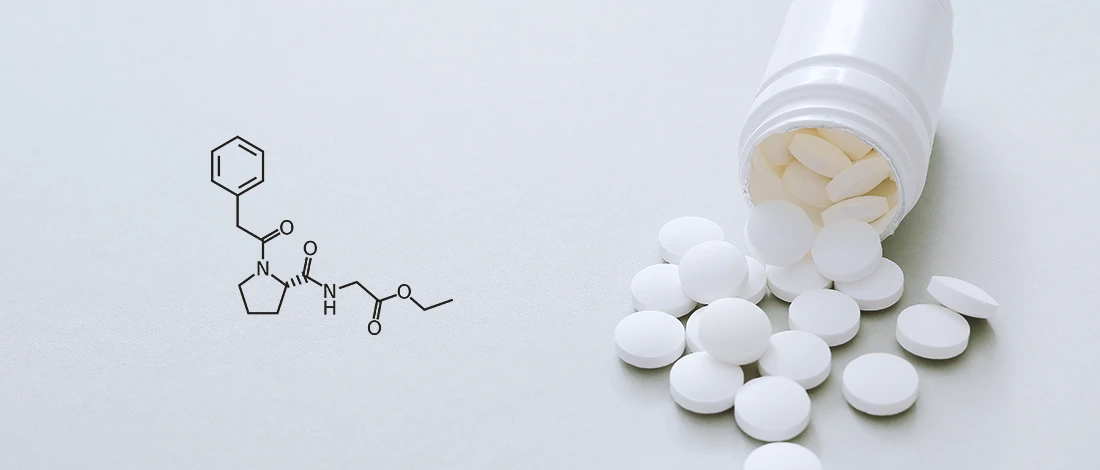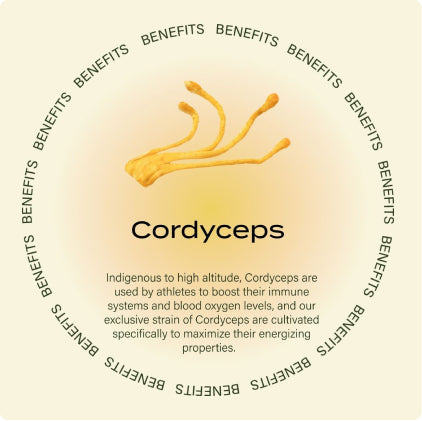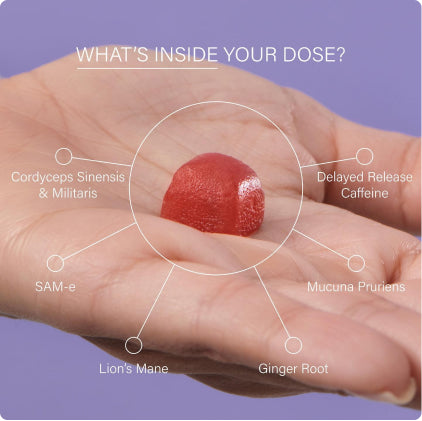In today's fast-paced world, people are constantly seeking ways to improve their cognitive abilities and enhance their mental performance.
Nootropics, also known as "smart drugs," have gained significant popularity for their potential to boost focus, energy, and overall brain function.
If you're looking for the best nootropics to support your cognitive goals, you're in the right place.
In this article, we'll explore some of the top-rated nootropic supplements and brain supplements, that can help you achieve mental clarity and optimize your performance.
What are Nootropics?
Nootropics, often referred to as "smart drugs" or "cognitive enhancers," are substances that aim to improve cognitive function, enhance memory, increase focus, and promote overall mental performance. These substances can include natural compounds, synthetic chemicals, or a combination of both.
What came up with the term Nootropic?

The concept of nootropics was first introduced by Romanian chemist and psychologist Dr. Corneliu E. Giurgea in the early 1970s.
Dr. Corneliu E. Giurgea was a Romanian chemist and psychologist who is widely recognized as the pioneer of nootropics. He was born on September 7, 1923, in Bucharest, Romania, and passed away on May 31, 1995.
Dr. Giurgea obtained his Ph.D. in chemistry from the University of Bucharest in 1946. He then pursued a career in pharmacology and neuroscience, focusing on the effects of various substances on the brain and behavior. He worked at the Romanian Academy's Institute of Medical Biochemistry and the Institute of Pharmacology in Bucharest.
In the early 1960s, Dr. Giurgea began investigating substances that could enhance cognition and improve brain function. His extensive research led him to develop the concept of nootropics and define the criteria that substances must meet to be classified as such. Dr. Giurgea coined the term "nootropic" from the Greek words "nous," meaning mind, and "tropos," meaning turning or bending.
Dr. Giurgea's definition of nootropics, which included enhancing learning and memory, supporting brain health, and having minimal side effects, laid the foundation for the field of cognitive enhancement. His pioneering work opened up avenues for further research and the development of new substances to improve brain health and cognitive performance.
Throughout his career, Dr. Giurgea published numerous scientific papers and contributed significantly to the field of psychopharmacology. His work on nootropics and his impact on neuroscience and cognitive enhancement continue to influence researchers and practitioners in the field today. His contributions have helped shape our understanding of cognitive enhancement and the development of safe and effective substances to further cognitive functioning and support brain function.
Dr. Giurgea's Nootropic Criteria
Dr. Giurgea developed a set of criteria to define what constitutes a nootropic substance.
According to his definition, a compound must meet the following criteria to be classified as a nootropic:
Enhance Learning and Memory
Nootropics should improve the ability to acquire and retain new information.
Support Brain Health
Nootropics should have neuroprotective properties and promote the health and longevity of brain cells.
Enhance Brain Function
Nootropics should enhance overall cognitive function, including factors like attention, focus, and mental clarity.
Lack Significant Side Effects
Nootropics should have minimal side effects and a low potential for toxicity when used at appropriate doses.
Non-Stimulant or Low Stimulant
Nootropics should not have a stimulating effect like traditional stimulant drugs, although some may have mild stimulating properties.
Nootropics Today

Since Dr. Giurgea's initial definition, the field of nootropics has expanded significantly, with ongoing research and the introduction of new substances. Nootropics can include a wide range of compounds, such as vitamins, minerals, herbal extracts, amino acids, and synthetic chemicals.
They can be used by individuals seeking to improve cognitive performance, students looking to enhance learning abilities, professionals aiming to boost productivity, and older adults interested in supporting brain health and combating age-related cognitive decline.
Natural substances like caffeine, L-Theanine, Bacopa Monnieri, and Ginkgo Biloba have long histories of traditional use in herbal medicine systems such as Ayurveda and Traditional Chinese Medicine. On the other hand, synthetic compounds prescription medications like Modafinil have been developed more recently and are often prescribed for specific medical conditions.
It's important to note that while some nootropics have demonstrated promising effects in scientific studies, the field is still evolving, and further research is needed to fully understand their mechanisms of action and long-term effects.
Caffeine (Slow Release)
One of the most widely consumed stimulants in the world, caffeine is renowned for its ability to increase alertness and improve concentration. When consumed in slow-release form, such as extended-release capsules or patches, caffeine provides sustained energy throughout the day, preventing the sudden crashes associated with regular consumption.
Here are some reasons why slow-release caffeine is considered potent:
-
Enhanced Alertness and Focus: Caffeine acts as an adenosine receptor antagonist, preventing adenosine, a neurotransmitter that promotes sleepiness, from binding to its receptors. By blocking adenosine, caffeine increases neuronal activity, leading to heightened alertness, improved focus, and reduced feelings of fatigue.
-
Increased Dopamine Release: Caffeine stimulates the release of dopamine, a neurotransmitter associated with pleasure, motivation, and reward. This increase in dopamine levels can contribute to enhanced mood, motivation, and cognitive performance.
-
Extended Duration of Effects: Slow-release caffeine formulations provide a sustained release of caffeine into the bloodstream over an extended period. This gradual release helps to avoid the sudden spike and subsequent crash often associated with regular caffeine consumption. By maintaining stable caffeine levels, slow-release formulations can provide prolonged cognitive benefits, including sustained alertness and focus.
-
Improved Cognitive Function: Research suggests that caffeine can enhance various aspects of cognitive function, including attention, reaction time, memory, and logical reasoning. It may improve cognitive performance particularly in situations that require sustained focus or when fatigue would otherwise impair performance.
-
Energy Boost: Caffeine stimulates the production of adrenaline, a hormone that activates the body's "fight or flight" response. This can lead to increased energy levels, physical stamina, and mental endurance, making it an attractive nootropic for individuals seeking a boost in energy and productivity.
It's important to note that while slow-release caffeine can offer prolonged cognitive benefits, individual responses may vary. Additionally, it is crucial to consider personal tolerance, potential side effects (such as sleep disturbances or increased heart rate), and the impact of caffeine on overall health. Moderation and understanding one's own sensitivity to caffeine are key factors in maximizing its benefits as a nootropic.
L-Theanine

L-Theanine is considered a powerful nootropic due to its unique properties and its ability to modulate brain function. Here are some reasons why L-Theanine is regarded as a potent nootropic:
-
Relaxation and Reduced Anxiety: L-Theanine promotes relaxation without causing drowsiness. It has been shown to increase levels of certain neurotransmitters, including gamma-aminobutyric acid (GABA), serotonin, and dopamine, which are associated with feelings of calmness and well-being. By modulating these neurotransmitters, L-Theanine can help reduce anxiety and promote a relaxed state of mind.
-
Synergistic Effects with Caffeine: L-Theanine is often found in combination with caffeine, such as in green tea. The combination of L-Theanine and caffeine offers a unique synergistic effect. While caffeine provides stimulation and increased alertness, L-Theanine can counteract the potential jitters or restlessness associated with caffeine, promoting a state of focused calmness. This combination is believed to enhance cognitive performance, attention, and focus.
-
Alpha Brain Waves: L-Theanine has been shown to increase alpha brain wave activity. Alpha waves are associated with a relaxed but focused mental state, often described as "wakeful relaxation." This state is conducive to improved creativity, mental clarity, and attention. By increasing alpha waves, L-Theanine can support a calm and attentive mindset.
-
Neuroprotective Effects: L-Theanine exhibits neuroprotective properties, which means it can help protect brain cells from damage and oxidative stress. It acts as an antioxidant, scavenging free radicals and reducing inflammation in the brain. These neuroprotective effects may contribute to maintaining brain health and potentially slowing age-related cognitive decline.
-
Improved Sleep Quality: L-Theanine has shown potential in improving sleep quality. It may help regulate sleep patterns, promote relaxation before sleep, and reduce sleep disturbances. By supporting restful sleep, L-Theanine indirectly enhances cognitive function and overall mental well-being.
-
Safety and Tolerability: L-Theanine is generally well-tolerated and considered safe for most individuals. It does not typically cause drowsiness or impair cognitive function. It lacks the side effects often associated with other anxiolytic or sedative substances, making it an appealing choice for individuals seeking a nootropic that can promote relaxation without compromising mental clarity.
Creatine

Creatine, primarily known for its role in enhancing physical performance and muscle strength, also has cognitive functions and demonstrates potential as a powerful nootropic. Here are some reasons why creatine is considered beneficial for cognitive enhancement:
-
ATP Production: Creatine plays a crucial role in the energy metabolism of cells by increasing the production of adenosine triphosphate (ATP). ATP is the primary energy source for cellular processes, including those involved in brain function. By increasing ATP availability, creatine supports the energy demands of brain cells, potentially leading to improved cognitive performance.
-
Brain Energy Metabolism: The brain requires a significant amount of energy to function optimally. Creatine supplementation has been shown to enhance brain energy metabolism by supporting the phosphocreatine system. Phosphocreatine, formed from creatine, helps replenish ATP levels in neurons rapidly. This energy reserve system may enhance cognitive processes that rely on energy-intensive tasks, such as memory, attention, and complex thinking.
-
Neuroprotection: Creatine exhibits neuroprotective properties, acting as an antioxidant and anti-inflammatory agent. It can help reduce oxidative stress and inflammation, which are associated with age-related cognitive decline and neurodegenerative diseases. By protecting brain cells from damage, creatine may support long-term brain health and potentially mitigate cognitive decline.
-
Memory and Cognitive Performance: Research suggests that creatine supplementation may improve certain aspects of memory and cognitive performance. Studies have shown positive effects on tasks requiring working memory, spatial memory, and information processing speed. Creatine's role in supporting brain energy metabolism and neuroprotection may contribute to these cognitive enhancements.
-
Mood and Mental Fatigue: Creatine has been investigated for its potential benefits in mood regulation and reducing mental fatigue. Some studies suggest that creatine supplementation may improve mood, reduce symptoms of depression, and attenuate cognitive fatigue. These effects could be attributed to creatine's impact on brain energy metabolism and neurotransmitter systems.
-
Safety and Tolerability: Creatine is widely regarded as safe and well-tolerated when used within recommended dosages. It is a naturally occurring compound found in foods like meat and fish. The potential side effects of creatine, such as gastrointestinal discomfort or weight gain, are typically mild and temporary.
Bacopa Monnieri

Bacopa Monnieri extract, a traditional herb used in Ayurvedic medicine, is considered a powerful nootropic due to its effects on cognition and brain health. Here are some reasons why Bacopa Monnieri is regarded as beneficial for brain power and cognitive enhancement:
-
Memory Enhancement: Bacopa Monnieri has been extensively studied for its ability to enhance memory and cognitive function. It is believed to improve memory acquisition, retention, and consolidation. Research suggests that Bacopa Monnieri enhances certain aspects of memory, such as verbal learning, working memory, and spatial memory.
-
Neuroprotective Properties: Bacopa Monnieri exhibits neuroprotective effects by reducing oxidative stress and inflammation in the brain. It contains antioxidants that help combat free radicals, which can cause cellular damage. These neuroprotective properties may contribute to maintaining brain health and potentially slowing down age-related cognitive decline.
-
Cholinergic Effects: Bacopa Monnieri is known to modulate cholinergic systems in the brain. It is believed to enhance cholinergic neurotransmission, which is involved in memory and learning processes. By promoting the availability of acetylcholine, a neurotransmitter associated with memory, Bacopa Monnieri may support cognitive function.
-
Adaptogenic Effects: Bacopa Monnieri has adaptogenic properties, meaning it helps the body adapt to and resist the effects of stress. Chronic stress and anxiety can negatively impact cognitive function, but Bacopa Monnieri may help mitigate the cognitive effects of stress by reducing stress hormone levels and promoting a sense of calmness and relaxation.
-
Anxiolytic Effects: Research suggests that Bacopa Monnieri has anxiolytic (anti-anxiety) effects. It may help reduce symptoms of anxiety and promote a relaxed state of mind. By reducing anxiety, Bacopa Monnieri can potentially enhance cognitive performance, as anxiety can impair concentration, focus, and memory.
-
Dopaminergic Effects: Bacopa Monnieri may influence dopamine levels in the brain. Dopamine is involved in motivation, reward, and mood regulation. By modulating dopamine pathways, Bacopa Monnieri may contribute to improved mood and motivation, which can indirectly enhance cognitive function.
-
Safety and Tolerability: Bacopa Monnieri is generally considered safe when used within recommended dosages. However, it may cause mild side effects such as digestive issues or drowsiness in some individuals. It is important to follow dosage guidelines and consult with a healthcare professional before starting Bacopa Monnieri supplementation.
Rhodiola Rosea

Rhodiola Rosea is considered a powerful nootropic due to its adaptogenic properties and its effects on cognition and mental performance. Here are some reasons why Rhodiola Rosea is regarded as beneficial for cognitive enhancement:
-
Adaptogenic Effects: Rhodiola Rosea is classified as an adaptogen, a natural substance that helps the body adapt to and resist various stressors. It has been traditionally used to combat physical and mental fatigue and increase resilience to stress. By modulating the body's stress response, Rhodiola Rosea may help improve cognitive function and mental performance in stressful situations.
-
Reduction of Fatigue: Rhodiola Rosea has been studied for its ability to reduce mental and physical fatigue. It may improve feelings of tiredness and increase mental energy and alertness. By reducing fatigue, Rhodiola Rosea can enhance concentration, focus, and overall cognitive performance.
-
Mood Enhancement: Rhodiola Rosea has been shown to have positive effects on mood regulation and emotional well-being. It may help reduce symptoms of depression and anxiety, leading to improved mental clarity and cognitive function. Rhodiola Rosea is believed to modulate neurotransmitters like serotonin, dopamine, and norepinephrine, which play a role in mood regulation.
-
Cognitive Performance: Research suggests that Rhodiola Rosea may have cognitive-enhancing effects. It has been found to improve cognitive function, attention, and mental processing speed. Rhodiola Rosea's ability to enhance mental performance may be attributed to its effects on neurotransmitters, stress reduction, and increased energy levels.
-
Neuroprotective Properties: Rhodiola Rosea exhibits neuroprotective properties, which means it may help protect the brain from oxidative stress and inflammation. It contains antioxidants that scavenge free radicals and reduce cellular damage. These neuroprotective effects may contribute to maintaining brain health and potentially preventing age-related cognitive decline.
-
Improved Physical Performance: Rhodiola Rosea has also been studied for its potential benefits in physical performance. By reducing fatigue and improving energy levels, it may enhance physical endurance, exercise capacity, and recovery. Physical fitness can indirectly influence cognitive function, as increased fitness levels are associated with improved brain health and cognitive performance.
-
Safety and Tolerability: Rhodiola Rosea is generally well-tolerated, and adverse effects are rare when used within recommended dosages. However, individual responses may vary, and some individuals may experience mild side effects such as dizziness or gastrointestinal discomfort. It is advisable to consult with a healthcare professional before starting Rhodiola Rosea supplementation, particularly if there are pre-existing health conditions or medication interactions.
Panax Ginseng

Panax Ginseng, also known as Korean Ginseng or Asian Ginseng, is regarded as a powerful nootropic due to its adaptogenic properties and its potential cognitive benefits. Here are some reasons why Panax Ginseng is considered beneficial for cognitive enhancement:
-
Adaptogenic Effects: Panax Ginseng is classified as an adaptogen, which means it helps the body adapt to and resist stressors. It has been used in traditional medicine to enhance vitality, increase resistance to fatigue, and improve overall well-being. By supporting the body's stress response system, Panax Ginseng may indirectly enhance cognitive function during periods of stress or fatigue.
-
Improved Cognitive Performance: Research suggests that Panax Ginseng may have positive effects on cognitive performance and brain fog reduction. It has been found to enhance memory, attention, and mental processing speed. Panax Ginseng's cognitive benefits may be attributed to its ability to modulate neurotransmitters, increase blood flow to the brain, and provide neuroprotective effects.
-
Neuroprotective Properties: Panax Ginseng exhibits neuroprotective effects, which means it may help protect the brain against oxidative stress and inflammation. It contains antioxidant compounds that scavenge free radicals and reduce cellular damage. These neuroprotective effects may contribute to maintaining brain health and potentially preventing age-related cognitive decline.
-
Energy and Alertness: Panax Ginseng is known for its stimulating effects, which can increase energy levels and promote wakefulness. It may help combat fatigue, improve mental clarity, and increase overall alertness. By providing a boost in energy, Panax Ginseng can support cognitive performance and help individuals stay focused and attentive.
-
Mood Enhancement: Panax Ginseng has been studied for its potential benefits in mood regulation and emotional well-being. It may help reduce symptoms of anxiety, depression, and fatigue-related mood disturbances. Improved mood and emotional stability can indirectly contribute to enhanced cognitive function and mental performance.
-
Anti-Fatigue Effects: Panax Ginseng has been investigated for its ability to combat mental and physical fatigue. It may help increase endurance, reduce feelings of exhaustion, and improve exercise performance. By reducing fatigue, Panax Ginseng can support cognitive performance during demanding tasks or prolonged mental exertion.
-
Safety and Tolerability: Panax Ginseng is generally considered safe when used within recommended dosages. However, it may interact with certain medications or have potential side effects such as headaches, gastrointestinal upset, or changes in blood pressure. It is advisable to consult with a healthcare professional before starting Panax Ginseng supplementation, especially if there are pre-existing health conditions or medication interactions.
Ginkgo Biloba
Ginkgo Biloba is considered a powerful nootropic due to its potential cognitive-enhancing properties and its long history of traditional use. Here are some reasons why Ginkgo Biloba is regarded as beneficial for cognitive enhancement:
-
Improved Blood Circulation: Ginkgo Biloba is known to improve blood circulation, including microcirculation in the brain. It does so by dilating blood vessels, reducing blood viscosity, and enhancing blood flow. Improved blood circulation to the brain can support optimal brain function, including memory, attention, and cognitive performance.
-
Antioxidant and Anti-inflammatory Effects: Ginkgo Biloba contains antioxidants that help neutralize harmful free radicals in the body. It also exhibits anti-inflammatory properties. By reducing oxidative stress and inflammation, Ginkgo Biloba may help protect brain cells from damage and support overall brain health.
-
Neuroprotective Properties: Ginkgo Biloba has been found to have neuroprotective effects, which means it may help protect nerve cells from damage and degeneration. It can support neuronal health, enhance synaptic plasticity, and promote the survival of brain cells. These neuroprotective effects may contribute to improved cognitive function and potentially slow down age-related cognitive decline.
-
Memory Enhancement: Ginkgo Biloba has been studied for its effects on memory and cognitive function. It may improve memory retention, recall, and overall cognitive performance. These effects may be attributed to the herb's ability to enhance blood flow to the brain, provide neuroprotective effects, and influence neurotransmitter systems involved in memory formation.
-
Focus and Mental Clarity: Ginkgo Biloba is believed to enhance focus and mental clarity. It may help improve attention span, concentration, and mental alertness. By supporting optimal brain circulation and providing neuroprotective effects, Ginkgo Biloba may contribute to a state of heightened mental focus and clarity.
-
Mood Enhancement: Ginkgo Biloba has been studied for its potential benefits in mood regulation and emotional well-being. It may help reduce symptoms of anxiety, depression, and mood disturbances. Improved mood can indirectly support cognitive function and mental performance.
-
Safety and Tolerability: Ginkgo Biloba is generally well-tolerated when used within recommended dosages. However, it may interact with certain medications or have potential side effects such as gastrointestinal upset or mild headaches. It is advisable to consult with a healthcare professional before starting Ginkgo Biloba supplementation, particularly if there are pre-existing health conditions or medication interactions.
Lion's Mane

Lion's Mane (Hericium erinaceus) is considered a powerful natural nootropic, due to its potential cognitive-enhancing properties and its historical use in traditional medicine. Here are some reasons why Lion's Mane is regarded as beneficial for cognitive enhancement:
-
Nerve Growth Factor (NGF) Stimulation: Lion's Mane contains bioactive compounds, including hericenones and erinacines, which have been found to stimulate the production of Nerve Growth Factor (NGF). NGF is a protein that plays a crucial role in the growth, maintenance, and survival of neurons. By promoting NGF production, Lion's Mane may support the regeneration and health of nerve cells, potentially enhancing cognitive function.
-
Neuroprotective Effects: Lion's Mane exhibits neuroprotective properties, meaning it helps protect the brain and nerve cells from damage. It can help reduce oxidative stress and inflammation, which are implicated in age-related cognitive decline and neurodegenerative diseases. These neuroprotective effects may contribute to improved cognitive function and long-term brain health.
-
Memory and Cognitive Performance: Research suggests that Lion's Mane may have positive effects on memory and brain performance.. It has been found to improve cognitive function, including learning, memory recall, and mental clarity. Lion's Mane's ability to promote NGF production and protect brain cells may contribute to these cognitive enhancements.
-
Focus and Mental Clarity: Lion's Mane is believed to enhance focus, mental clarity, and concentration. It may help reduce brain fog and improve attention span. By supporting optimal brain health and neuronal function, Lion's Mane can contribute to a state of heightened mental focus.
-
Mood Enhancement: Lion's Mane has been studied for its potential benefits in mood regulation and emotional well-being. It may help reduce symptoms of anxiety and depression, leading to improved overall mood and mental well-being. Enhanced mood can indirectly support cognitive function and performance.
-
Gut-Brain Connection: Emerging research suggests that there is a strong connection between the gut and brain health. Lion's Mane may have positive effects on the gut microbiota by promoting the growth of beneficial bacteria. A healthy gut microbiome is associated with improved cognitive function and mental well-being.
-
Safety and Tolerability: Lion's Mane is generally considered safe and well-tolerated when used within recommended dosages. However, individual responses may vary, and some individuals may experience mild gastrointestinal discomfort. It is advisable to choose high-quality Lion's Mane supplements and consult with a healthcare professional before starting supplementation.
Cordyceps

Cordyceps is considered a powerful nootropic due to its potential cognitive-enhancing properties and its long history of traditional use. Here are some reasons why Cordyceps is regarded as beneficial for cognitive enhancement:
-
Increased Oxygen Utilization: Cordyceps has been found to enhance the body's ability to utilize oxygen. It improves oxygen uptake and utilization at the cellular level, including in the brain. By increasing oxygen delivery to brain cells, Cordyceps may enhance cognitive function, mental clarity, and focus.
-
Adaptogenic Effects: Cordyceps is classified as an adaptogen, which means it helps the body adapt to and resist various stressors. It has been used in traditional medicine to combat fatigue, enhance stamina, and increase overall vitality. By modulating the body's stress response, Cordyceps may indirectly support cognitive function during periods of stress or fatigue.
-
Energy and Endurance Boost: Cordyceps has been shown to enhance energy levels and physical endurance. It improves mitochondrial function, which is responsible for energy production in cells. By increasing energy levels, Cordyceps can support mental performance, concentration, and alertness.
-
Neuroprotective Properties: Cordyceps exhibits neuroprotective effects, meaning it helps protect brain cells from damage and degeneration. It has antioxidant and anti-inflammatory properties that reduce oxidative stress and inflammation in the brain. These neuroprotective effects may contribute to improved cognitive function and overall brain health.
-
Mood Enhancement: Cordyceps has been studied for its potential benefits in mood regulation and emotional well-being. It may help reduce symptoms of anxiety and depression, leading to improved mood and mental well-being. Enhanced mood can indirectly support cognitive function and performance.
-
Immune System Support: Cordyceps has immunomodulatory effects, meaning it helps regulate and support the immune system. A healthy immune system is crucial for optimal brain function. By promoting immune system health, Cordyceps may indirectly enhance cognitive function.
-
Safety and Tolerability: Cordyceps is generally considered safe and well-tolerated when used within recommended dosages. However, individual responses may vary, and some individuals may experience mild gastrointestinal discomfort. It is advisable to choose high-quality Cordyceps supplements and consult with a healthcare professional before starting supplementation.
Mucuna Pruriens
Mucuna Pruriens, also known as velvet bean, is considered a powerful nootropic due to its potential cognitive-enhancing properties and its traditional use in Ayurvedic medicine. It's recently become popular as a over the counter support for those with attention deficit hyperactivity disorder ( ADHD ).
Here are some reasons why Mucuna Pruriens is regarded as beneficial for cognitive enhancement:
-
Dopamine Regulation: Mucuna Pruriens contains a high concentration of L-DOPA (levodopa), which is a precursor to dopamine, a neurotransmitter associated with motivation, reward, and cognitive function. By increasing dopamine levels in the brain, Mucuna Pruriens may support improved mood, motivation, focus, and cognitive performance.
-
Mood Enhancement: Mucuna Pruriens has been studied for its potential benefits in mood regulation and emotional well-being. It may help reduce symptoms of depression, anxiety, and stress-related mood disturbances. Enhanced mood can indirectly support cognitive function and mental performance.
-
Neuroprotective Effects: Mucuna Pruriens exhibits neuroprotective properties, meaning it helps protect brain cells from damage and degeneration. It contains antioxidant compounds that help reduce oxidative stress and inflammation in the brain. These neuroprotective effects may contribute to improved cognitive function and overall brain health.
-
Enhanced Mental Performance: Research suggests that Mucuna Pruriens may have positive effects on cognitive performance. It has been found to improve attention, memory, and learning ability. The dopamine-boosting properties of Mucuna Pruriens may contribute to these cognitive enhancements.
-
Antioxidant Activity: Mucuna Pruriens is rich in antioxidants, which help neutralize harmful free radicals and reduce oxidative stress. Oxidative stress can negatively impact brain health and cognitive function. By providing antioxidant support, Mucuna Pruriens may help protect brain cells and support cognitive performance.
-
Anti-Fatigue Effects: Mucuna Pruriens has been investigated for its ability to combat mental and physical fatigue. It may help improve energy levels, reduce feelings of exhaustion, and enhance overall endurance. By reducing fatigue, Mucuna Pruriens can support cognitive performance during demanding tasks or prolonged mental exertion.
-
Safety and Tolerability: Mucuna Pruriens is generally considered safe and well-tolerated when used within recommended dosages. However, it may interact with certain medications or have potential side effects such as gastrointestinal upset or changes in blood pressure. It is advisable to choose high-quality Mucuna Pruriens supplements and consult with a healthcare professional before starting supplementation.
Modafinil

Modafinil falls into the prescription nootropics category. It's considered a powerful, nootropic supplement due to its potential cognitive-enhancing properties and its use as a wakefulness-promoting agent. Here are some reasons why Modafinil is regarded as a nootropic supplement beneficial for cognitive enhancement:
-
Increased Wakefulness and Alertness: Modafinil is primarily known for its ability to promote wakefulness and combat excessive daytime sleepiness. It acts on certain neurotransmitters in the brain, including dopamine, norepinephrine, and histamine, which contribute to increased wakefulness, alertness, and vigilance. By promoting a state of wakefulness, Modafinil can enhance cognitive function and mental performance.
-
Enhanced Focus and Concentration: Modafinil has been found to improve focus, attention, and concentration. It can help individuals stay engaged and attentive during tasks that require sustained mental effort. The wakefulness-promoting effects of Modafinil contribute to enhanced cognitive abilities in terms of focus and concentration.
-
Cognitive Enhancement: Modafinil has been studied for its effects on cognitive performance, including memory, learning, and problem-solving. It may improve working memory, executive functions, and decision-making abilities. These cognitive enhancements can be particularly beneficial for individuals who need to perform complex cognitive tasks or require enhanced mental acuity.
-
Reduced Fatigue and Mental Exhaustion: Modafinil has been shown to reduce fatigue and mental exhaustion, especially in individuals who experience sleep deprivation or work long hours. By combating fatigue, Modafinil can help individuals maintain mental performance and cognitive function during demanding situations.
-
Dopamine Regulation: Modafinil affects dopamine levels in the brain by blocking the reuptake of dopamine, leading to increased dopamine availability. Dopamine is a neurotransmitter associated with motivation, reward, and cognitive function. By modulating dopamine levels, Modafinil may improve motivation, productivity, and cognitive performance.
-
Safety and Tolerability: Modafinil is generally well-tolerated when used within recommended dosages. However, it may have potential side effects such as headaches, nausea, insomnia, or increased blood pressure. It is important to use Modafinil under medical supervision and follow prescribed dosages. Additionally, Modafinil is a prescription medication and should only be used under the guidance of a healthcare professional.
Taurine

Taurine is an amino acid-like compound that is naturally found in various tissues throughout the body, including the brain. While taurine is not typically classified as a nootropic, it has been studied for its potential cognitive benefits. Here are some reasons why taurine may have positive effects on cognition:
-
Neuroprotective Properties: Taurine exhibits neuroprotective effects, meaning it helps protect brain cells from damage. It has antioxidant and anti-inflammatory properties that can reduce oxidative stress and inflammation in the brain. By protecting neurons from damage, taurine may support optimal brain function and cognitive health.
-
GABAergic Modulation: Taurine is known to modulate the activity of the neurotransmitter gamma-aminobutyric acid (GABA) in the brain. GABA is an inhibitory neurotransmitter that helps regulate neuronal excitability and promotes a calm and relaxed state. By enhancing GABAergic activity, taurine may contribute to stress reduction, anxiety relief, and improved cognitive performance.
-
Energy Metabolism: Taurine plays a role in cellular energy metabolism. It is involved in the production of adenosine triphosphate (ATP), the primary energy currency of cells. By supporting energy production, taurine may indirectly enhance cognitive function, mental clarity, and focus.
-
Modulation of Neurotransmitters: Taurine can modulate the levels and activity of various neurotransmitters, including dopamine, serotonin, and glutamate. These neurotransmitters play crucial roles in mood regulation, motivation, and cognitive processes. By influencing neurotransmitter systems, taurine may have positive effects on mood, motivation, and cognitive function.
-
Anti-Anxiety Effects: Taurine has been studied for its anxiolytic properties, meaning it may help reduce anxiety and promote a sense of calmness. By reducing anxiety, taurine may indirectly enhance cognitive performance, as anxiety can negatively impact focus, concentration, and memory.
-
Cardiovascular Health: Taurine has been shown to support cardiovascular health by improving blood flow and reducing oxidative stress. A healthy cardiovascular system is essential for optimal brain function and cognitive performance.
Noopept

Noopept is a synthetic nootropic compound that is commonly touted for its cognitive-enhancing effects. Unlike some of the natural nootropics, the effects of Noopept can be felt within minutes Here are some reasons why Noopept is so powerful
-
Cognitive Enhancement: Noopept is believed to improve cognitive function, including memory, learning, and information processing. It has been shown to enhance working memory, which is the ability to temporarily store and manipulate information. By promoting improved cognitive performance, Noopept may enhance overall mental acuity and productivity.
-
Neuroprotective Properties: Noopept exhibits neuroprotective effects, meaning it helps protect neurons from damage and degeneration. It has been found to have antioxidant and anti-inflammatory properties, which can reduce oxidative stress and inflammation in the brain. By protecting brain cells, Noopept may support long-term brain health and potentially slow down age-related cognitive decline.
-
Increased BDNF Levels: Noopept has been shown to increase the levels of brain-derived neurotrophic factor (BDNF) in the brain. BDNF is a protein that promotes the growth, survival, and maintenance of neurons. Higher BDNF levels are associated with enhanced neuroplasticity, which is the brain's ability to adapt and form new connections. By increasing BDNF levels, Noopept may facilitate neuroplasticity and support learning and memory processes.
-
Enhanced Communication Between Brain Hemispheres: Noopept is believed to improve interhemispheric communication, meaning it may enhance the coordination and interaction between the left and right hemispheres of the brain. This improved connectivity may lead to enhanced cognitive abilities, creativity, and problem-solving skills.
-
Mood Enhancement: Some users report mood-enhancing effects with Noopept supplementation. It may help reduce symptoms of anxiety and depression, leading to an improved sense of well-being. By promoting a positive mood state, Noopept may indirectly support cognitive function and mental performance.
-
Rapid Onset and Short Duration: Noopept is known for its rapid onset of action and relatively short duration. It is quickly absorbed and readily crosses the blood-brain barrier, allowing for faster effects. The short duration of Noopept's effects may be beneficial for individuals who prefer a nootropic that provides immediate cognitive enhancement without long-lasting stimulation.
-
Safety and Tolerability: Noopept is generally well-tolerated when used at recommended dosages. However, individual responses may vary, and some users may experience side effects such as headaches, irritability, or fatigue. It is important to start with a low dosage and gradually increase if necessary, while monitoring for any adverse effects. As with any nootropic or supplement, it is advisable to consult with a healthcare professional before starting Noopept or any new supplementation regimen.
Final Thoughts
In conclusion, the world of nootropics offers a range of dietary supplements used to support cognitive and mental function,, energy, and focus.
When considering the best nootropic supplements for energy and focus, it's essential to remember that individual responses may vary.
Caffeine (slow release), L-Theanine, Creatine, Bacopa Monnieri, Rhodiola Rosea, Panax Ginseng, Ginkgo Biloba, Lion's Mane, Cordyceps, Mucuna Pruriens, Modafinil, Taurine and Noopept are among the best nootropics available.
Gathering these ingredients up individually and getting the dosing right can be a challenge, thats why we created our gummy Mojo - our laser focus gummies - we wanted to make good health and nutrition easy to understand and access.

Our team developed a proprietary blend of nootropics, functional mushrooms, herbs, adaptogens and roots that boost focus, energy, productivity and support healthy brain function.
These trusty gummies for adults support cognitive and boost brain function, and improve mental performance, without any jitters associated with stimulants.

They contain 12 bioactives including 6 of the ones listed above in this article, that work synergistically to help you get in the zone and give you laser focus.
Flavors include tangy tangerine, blueberry lavender and pomegranate hibiscus.
Backed by numerous studies, they taste great, are vegan, gluten-free, and contain natural ingredients with no artificial flavors or colors.
Mojo recently won the product of the year at the Microdose awards, and have been featured in Vice, Cool Hunting, Business Insider and Forbes.
Over 1 million gummies sold in the U.S since our launch in 2021 - we're proud to help our community think more clearly, be more productive and feel more connected.

If you want to try Mojo, you can use the following code for 15% off: WELCOME15
Table of contents










